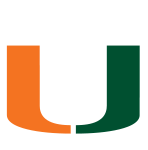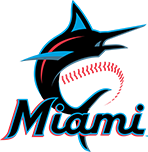A concussion is a head injury that affects your brain function. It can be produced by a bump, blow, or jolt to the head or body (with force transmitted to the head). Concussions are a national epidemic in athletics, especially in contact sports – from youth football, soccer, and lacrosse to the NCAA and professional leagues. An estimated 1.6 to 3.8 million sports-related concussions occur each year (Source: CDC).
Concussion Specialists
When someone experiences a concussion, you may notice these signs and symptoms immediately, or they may develop slowly over several hours:
- Headache
- Dizziness
- Ringing in ears
- Sensitivity to light
- Sensitivity to noise
- Change in sleep patterns
- Difficulty concentrating
- Drowsiness
- Lack of coordination
- Restlessness
- Change in appetite
- Lethargy and tiredness
- Personality changes
For more information about concussions and what you should do if you suspect you have one, check out our concussion FAQs.
If you, your child, or a teammate suffer a concussion— or suspect one — there’s a specialized multidisciplinary team of concussion experts devoted to your care. The Concussion Program at the University of Miami Sports Medicine Institute focuses on education, prevention, and treatment of this common, potentially serious, brain injury. Every concussion patient is unique. Here, you receive expert care and treatments targeted to your specific needs.
Treatments
Rest
If symptomatic your doctor will recommend that you fully rest – both physically and mentally – to recover from a concussion.
Pain medication
Depending on symptoms reported your doctor may recommend you take one of the over-the-counter pain relievers such as ibuprofen to reduce your headaches while recovering from your concussion. However, you should consult your physician.
Accomodations In some cases, students that sustain concussions may have difficulty with homework, attending class, taking tests and may report a decrease in academic performance. Our team of experts can recommend academic accommodations which may include more time to do school work, decrease time using computers, note taking etc. while the student is symptomatic.
Tests
Physical examination
Your doctor will conduct a complete neurological examination and collect your health history to help make the diagnosis. This will likely include an interview that also evaluates your balance, cognitive (thinking) skills, including your memory and concentration as well as any other emotional or behavioral issues.
Imaging tests
Brain imaging may be recommended for those with more severe headaches, seizures, repeated vomiting, or symptoms that get worse over time. These tests are used to determine if the injury is severe. A cranial computerized tomography (CT) scan is the standard brain test to assess the brain right after injury. A Magnetic resonance imaging (MRI) is also used to view bleeding in your brain or diagnose at a deeper level any injury. Most of the time these tests are negative following a concussion.
Why Choose the University of Miami Sports Medicine Institute?
World-class care in an academic health system. As a research and teaching institution, we treat children and adults with proven, leading-edge procedures based on clinical studies performed at the Miller School of Medicine. Our doctors, residents, nurses, and therapists work together to create healthy outcomes.


